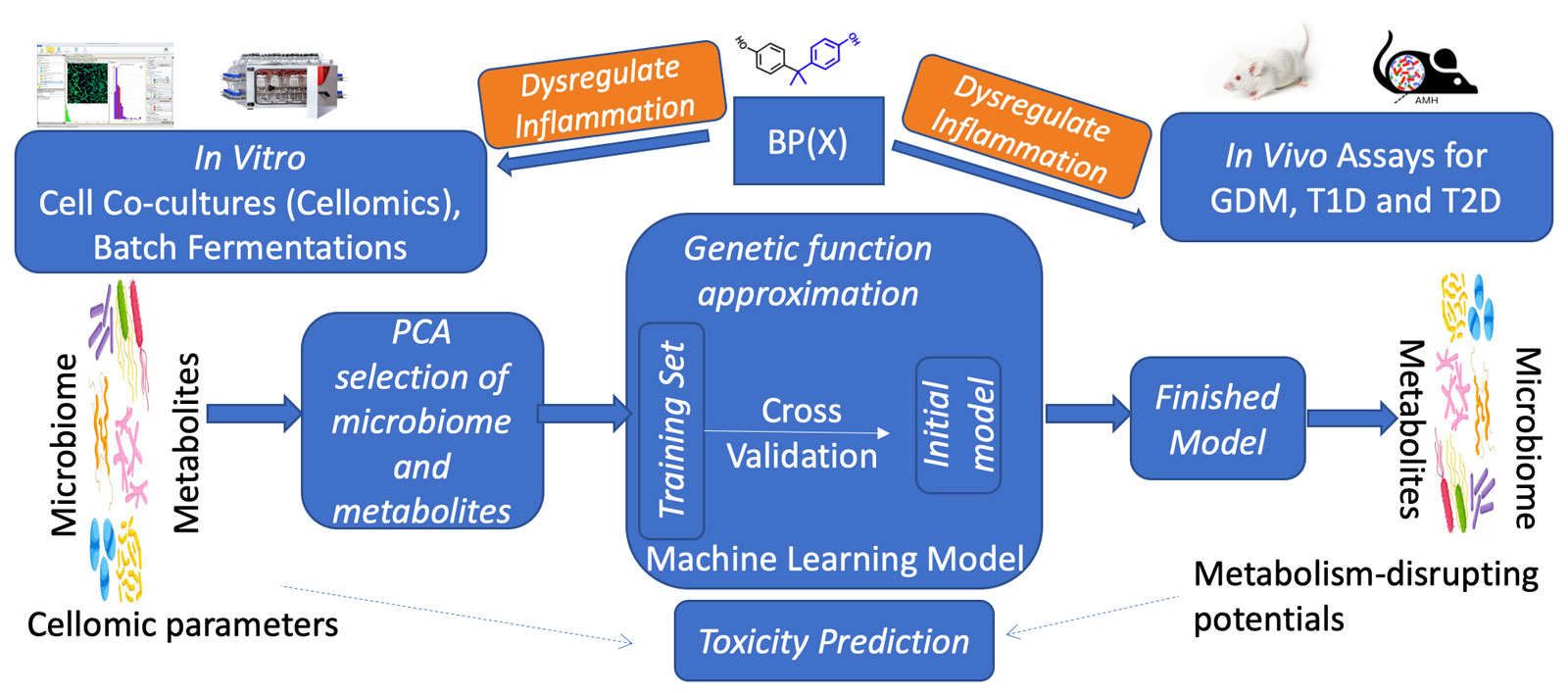Teaming for Interdisciplinary Research Pre-Seed Program
Bridging the high-throughput in vitro and in vivo data for risk assessment of bisphenol analogs in diabetes

Bridging the high-throughput in vitro and in vivo data for risk assessment of bisphenol analogs in diabetes
The objective of this research team is to advance the toxicity estimation of environmental chemicals (e.g., bisphenol analogs) by: 1) determining if exposures during pregnancy exacerbate gestational diabetes mellitus (GDM), and type 1 (T1D) and type 2 diabetes (T2D) later in life, 2) determining the toxicity of selected environmental chemicals using human in vitro platforms for high-throughput and high-content analysis, and 3) building models to predict the metabolism-disrupting potentials of environmental chemicals using the data from human in vitro platforms with quantitative structure-activity relationship model (QSAR) integrated deep learning and genetic algorithms. This directly target gaps in knowledge to better understand the effects of environmental exposures on maternal health and physiology during pregnancy and on the short- and long-term health of the mother. We have identified representative bisphenol analogs that are widely used in the industry as a replacement for the notorious bisphenol A (an exogenous compound found in polycarbonate plastic) basing on pre-existing toxicokinetics, the structural and fate properties of the chemicals, available toxicology report, and their occurrence in human exposure including pregnant women. Successful outcomes from the proposed research will provide a rapid, cost-efficient, and high-throughput approach to evaluate the toxicity of environmental chemicals with multiple mechanisms, which are essential to understand whether and how environmental chemicals contribute to the global epidemic of diabetes, and may be translated into prevention strategies for diabetes (e.g., probiotic intervention).
Team Lead
Tai Guo
College of Veterinary Medicine
tlguo1@uga.edu
Team Members
Xiaozhong “John” Yu
Department of Environmental Health Science
Ke Li
School of Environmental, Civil, Agricultural and Mechanical Engineering
Jia-Sheng Wang
College of Public Health
Hanwen Huang
Department of Epidemiology and Biostatistics
Tamas Nagy
Department of Pathology
